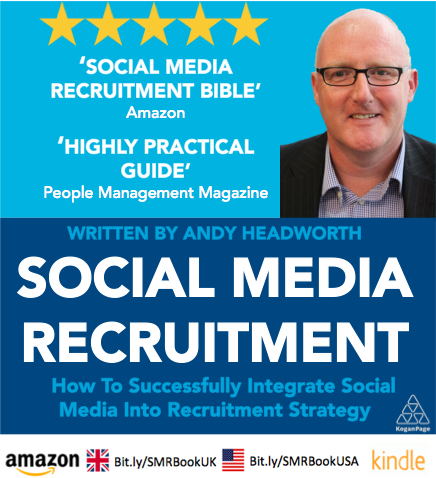Are You The Recruiter Of Choice In Your Industry Niche?
As a recruiter, what are you doing to ensure you are a value-add recruiter, and not one that just processes CV’s from job adverts to your clients - internal or external? The reason I ask this question, is because automation and direct resourcing are starting to make companies question who they use to help them recruit new employees. I heard a large employer who uses a large amount of recruitment agencies, talk about their selection criteria for there new PSL review. If you pitched ‘we have the lowest fees’, for example, you were immediately struck off for the next round. They wanted to see quality of service (and proof), good candidate experience feedback and best practice recruitment methods.
So for many teams of recruiters, change is probably needed. They need to consider how they can move with the changing times - both from a candidate expectation and changing technologies.
Technology vendors and RPO’s (Recruitment Process Outsourcers) - are again a big threat to all the ‘average’ and non-specialised recruiters out there, who are not taking the time to understand the changing recruitment landscape ahead. Be under no illusions – they ARE going after the same £$€ recruitment budgets you are after! Here are just three ways these companies are doing this NOW:
- Companies like TalentBin, Dice OpenWeb and Entelo etc have been building very clever sourcing engines, to meet the sourcing demand for these skills. They are creating superb aggregated sourcing platforms, with the ability to search for candidates across multiple online social networks. So if you are a recruiter and you are not plugged into social media, then some of these tools can simply bypass you while you carry on just placing adverts on job boards.
- CRM, ATS and online recruitment vendors are building intelligent social searches into their products and ‘automating’ a large element of the candidate search. They won’t replace a good recruiter/sourcer, but they will probably pick up 80% of the same candidates.
- RPO’s of all sizes are using cost reduction, process efficiency and candidate delivery as valid selling points when pitching their services. I know clients who have never thought of them before currently considering stripping out an underperforming recruitment team and going down the RPO route.
These are all product types that are available to both corporates and recruitment agencies. Just to be very clear here, I am not saying this is the death of recruitment - quite the opposite actually. Good recruiters will take advantage of these time savers to give them more time to do what they are good at - identifying, networking, engaging with and recruiting candidates. The methods of recruiting may be changing but good recruiters will always be in demand - we are in a people business after all.
So what are you going to do about this? You need to be adding some real value to the recruitment service you are able to offer your clients. You need to ensure you don’t miss the good candidates on your database, have access to all the candidates across different social networks (and not just those sitting on LinkedIn) and become a real specialist in what you do and the industry / sector you work in.
I am a huge a huge social media recruitment advocate - I have literally written the book on it - yet there are plenty of candidates that are a) not on the social networks or b) have moved away from mainstream networks because of recruiters continually chasing them, or c) they are too busy to even give a damn about the social world!
Finding these people is just the start – whether it is via deep sourcing, name gathering, networking or even speaking to people! But I just want you to look at this problem from the other side – the candidate side. Why would these ‘in-demand’ candidates want to speak to you? Why would they be happy to be part of your ‘network’/community? Recruiters need to be able to position themselves in their industry / sector as the go-to recruiter - and this applies to both agency and in-house recruiters.
Are you recognised as a specialist recruiter? Here are ten questions that will answer that question:
- Are you an industry specialist?
- Do you know a sector/industry well enough to know all the relevant people in that sector?
- Are you connected to them all on LinkedIn?
- Can you prove it via your LinkedIn profile?
- Do you add value to your industry?
- Do you regularly share interesting relevant content?
- Are your insights on your niche blog recognised as thought leading? (Do you write a blog, or publish content on Linked?)
- Are you a recognised ‘connector’ within your specialist area?
- Do you happily provide introductions to others in your specialist network?
- Are you seen as a person who knows people to talk to in your field?
- Do you have a ‘community’ where you facilitate all of the above?
- Do you manage a LinkedIn Group, Facebook Group or Google+ Community?
- Do you do organise regular meet-ups with groups of your target audience?
- Do you have continual and transparent engagement with your audience?
- Are you visible on relevant social networks, sharing content and engaging with people in your industry?
- Are you ‘the one to follow” for industry updates?
- Are you present and active where your audience are?
- Are you just on LinkedIn or Twitter?
- How far do you go to engage with your audience - do you jump on Quora (for example) and answer questions to demonstrate your industry knowledge?
- If someone landed on your profile (wherever that is) would they immediately recognise your for what you are – an industry specialist?
- Does your headline and bio have all the relevant keywords and descriptions that candidates would recognise?
- Are you posting regular content on that network and is it on topic to your industry?
- Do you know where the new talent is entering the industry from?
- Which university courses, which universities, which countries?
- Are you mapping them and engaging with them before they leave university?
- Do your clients know you know 1-8?
- When was the last time you met with them and told them?
- Do you regularly show them your level of knowledge when taking a brief for a new role?
- When was the last time you were asked to speak at one of the industry events (large or small) in your specialist sector?
- If you do, how often do you do it? Do you ask to speak at events?
- If you don’t are you regularly seen at these events, networking and building relationships?
There are of course many more criteria that you could used to help determine your positioning in your industry and your peer groups. But with some effort and consistency, social media not only allows everyone the opportunity to be recognised as an expert it also allows them to prove it with content and insights they can create themselves, or great curated content from others.
If you want to discuss / need help for any of the above further, just let me know. And remember if you like this post, don’t forget to subscribe to Sirona Says blog to ensure you don’t miss the weekly posts.

-
Ionut Roghina
-
Andy Headworth
-
Chris
-










